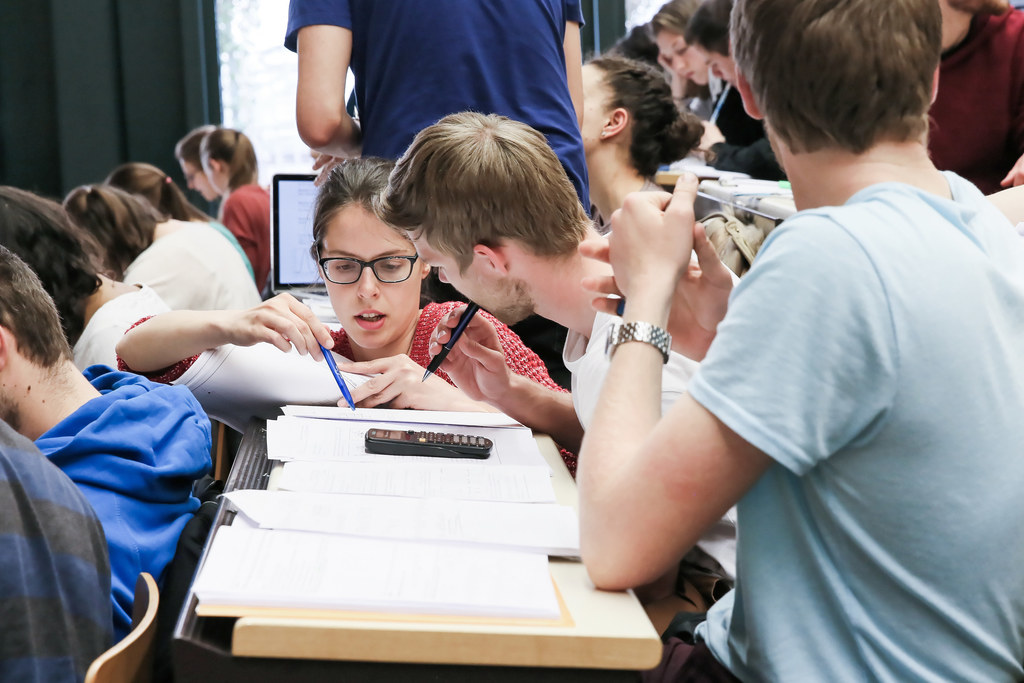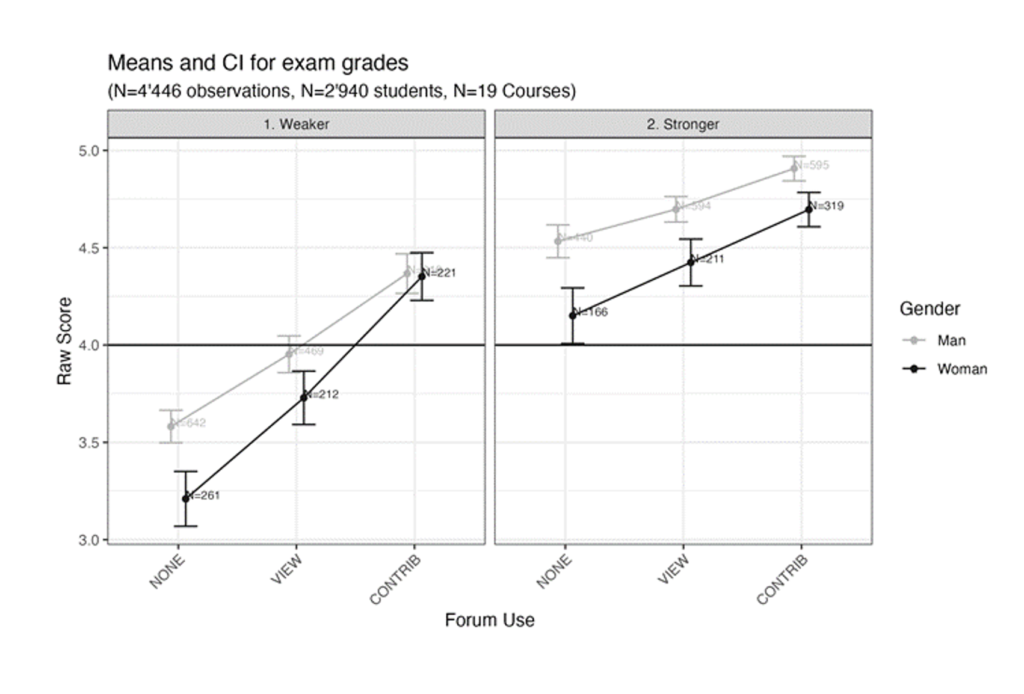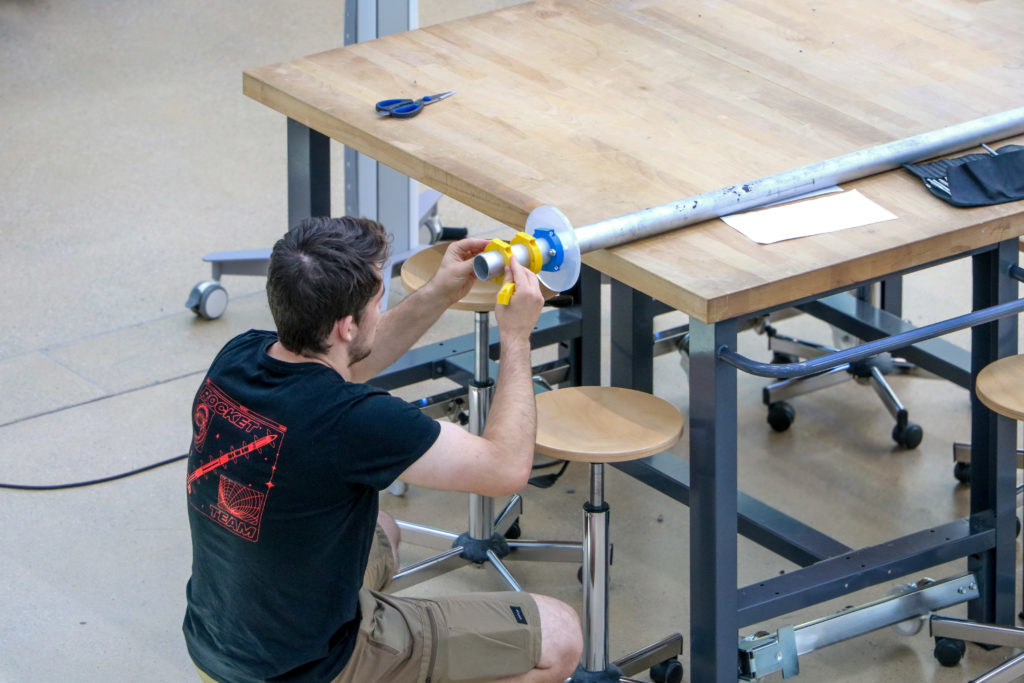Promoting diversity with online forums
Today online discussion forums are one of the most powerful tools for learning. At EPFL, their use has been encouraged for the past twenty years.

As technology continues to rapidly evolve and in response to the pandemic, more students are learning through a mix of online and in-person classes rather than being on campus full-time.
To support this mixed learning approach, EPFL suggests using online discussion forums like Piazza and Ed Discussion. These platforms let students work together and get feedback even when they’re not in the same room. However, how well these forums work depends a lot on how teachers set them up – like giving clear instructions to teaching assistants about when and how to respond to student posts.
This raises an important question: What’s the best way to run an online forum to get students more involved and encourage deeper discussions?
Since students can post anonymously on these platforms, we also want to know if they’re especially helpful for students who might be struggling – like first-year students still adjusting to university life or those who didn’t have strong math backgrounds in high school.
Previous efforts to Improve Retention of Non-traditional students in STEM Education at EPFL
Over the past five years, the Teaching Support Center (CAPE), the Center for Digital Education (CEDE), the Propedeutic Center (CePro), and the Centre for Learning Sciences (LEARN) have developed and researched educational interventions to improve retention of non-traditional students, including women, students from lower socio-economic backgrounds, and students from underrepresented ethnic groups, in STEM education at EPFL, with the goal of achieving equal participation across all student groups.
This research is particularly important because non-traditional students often enter university with less preparation in high-level mathematics (for instance, only 33% of women who studied in Switzerland had specialized in Math and Physics in high school compared to 61% of male students), and the learning sciences can provide valuable pedagogical strategies to address these retention challenges and improve educational outcomes for underrepresented groups in EPFL’s programs.
Our Study
Together with the CEDE, the LEARN internal mission team aimed to investigate to what extent online forums help diverse students, in terms of gender and mathematics ability, succeed in the first year at university, a period recognized as difficult for most freshmen.
The research approach
About 3’000 records from first-year students were analyzed, where the procedure employed k-anonymity at the student level and was approved by the Ethical Commission at our institution. Furthermore, the unit in charge of academic data was asked to enrich it with indicators of academic performance. Based on this, a number of courses could be further examined, without compromising the identity of the students.
Online forums’ potential in strengthening retention

Results of this study showed that online forums seemed to significantly benefit students with weaker mathematical backgrounds as well as female students.
Students with stronger mathematics ability consistently performed better overall, and forum participation (both viewing and contributing) improved grades compared to non-participation, with contributing being more beneficial than just viewing.
Importantly, the data revealed that forum use had a greater positive impact on weaker students than stronger ones, and women showed larger grade improvements from forum participation than men, with the greatest benefits observed for women with weaker math backgrounds—suggesting that forums serve as a particularly valuable support tool for non-traditional students who may need additional academic assistance.
Relevance
This research could enhance the educational processes at universities as well as help better explain how diverse students engage with/in several courses and how this affects their overall performance for various achievement outcomes in the first year.
It could further help the education at such institutions by providing recommendations for practice that could be relevant for different stakeholders: it could feed into the first-year commissions with potential for improved feedback practices. It might also be relevant for centres for pedagogical resources, in terms of training of teaching staff that is active in this transition period.
Related lunch&LEARN sessions
- lunch&LEARN: Piazza as a service tool for asynchronous learning preliminary results (watch on YouTube)


